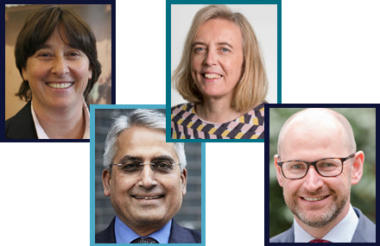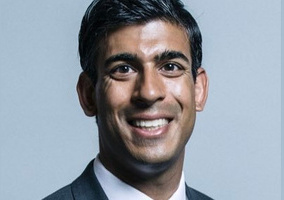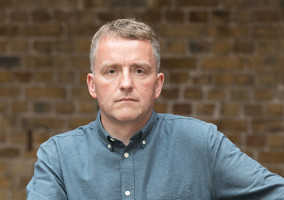Some charities have become more democratic and less hierarchical during the crisis, charity finance leaders heard yesterday.
Speaking at a panel session during Civil Society Media’s Charity Finance Week 2020, charity leaders said that changes to working practices during the pandemic have resulted in more internal democracy.
They also discussed how charities could have made a better case for support from the government and the media in the early days of the crisis.
Less hierarchy
Henny Braund, chief executive at Anthony Nolan, said that the charity has been trying to look after its staff during the pandemic by providing support from the top but also by enabling people to create initiatives themselves. Feedback has been that people have been “empowered to do so much more”, she said.
She added that tech can create a sense of democratisation: “If you're sitting on a call with 20, 100, or 300 [people], I do think there's a sort of democratisation that happens.
“There's less of a hierarchy, somehow there's less of the old guard, of the same people speaking. And I've been really encouraged by that.”
Although, she added, the lack of in-person interactions has also resulted in a loss of creativity and spontaneity.
Paula Laird, director of finance and IT at WaterAid, agreed: “The way we're working has created much more internal voice, because actually it's a level playing field.
"There’s more access to people in leadership, for everyone.”
She said that this for example happened at WaterAid with visits to programmes around the world. Since they are being held virtually during the pandemic, more people have been able to take part and offer their input.
Laird said: “We are having less of this really hierarchical way of behaving in the organisation, which is inevitable when you have structures and when you're all about being in the physical. In the virtual, there's more equity, more equality.
"This is making us a richer organisation for voice, for thinking, for ways forward. It is enabling people to come up with solutions to problems.
“[During a pandemic], you need to act quickly. You can't act quickly if you're waiting for the most senior people to tell you what to do, you just have to get on with it.
"This is something we must not lose, as a sector and as organisations: true participation, listening, adapting and evolving.”
Charities need to be ‘smarter’ in making their case with government
The panel also discussed the government’s attitude to charities during the crisis, with speakers saying that the sector could have argued its case better.
Braund said: “It's about recognising that we are an essential part of the ecosystem, recognising our value and what we contribute, and getting our argument across.
“I think that maybe we didn't always make that argument in the right way. We needed to move it from need to value, and talk about the beneficiaries and what we were doing on a day-to-day basis more.
“We play an absolutely essential part in the ecosystem. So it's really important that we highlight that, and how much we contribute to the economy.”
Laird from WaterAid and Kris Murali, director of finance and resources at the Scouts, agreed.
Murali said: “As a sector, I think we are a bit distributed. And sometimes the message doesn't get through or we're not speaking in one voice, because we are very busy looking after our own areas. So maybe, we must now create mechanisms by which we are able to present the value that we bring to society.”
Laird said the sector sometimes presents itself as “needy”, rather than showing how it adds value. She said it is about “stepping forward with confidence” instead.
“How are we adding value? And why is this critical to what the future of the nation looks like, what the future of the world looks like?
"I think there's strong resonance with a number of the different themes that are presented by government. I think we have opportunity there to make that case, but we're going to have to be smarter about it.”
Articulating the sector’s contribution in the media
Martin Houghton-Brown, chief executive of St John Ambulance, looked back at the beginning of lockdown, when he was among the people in the sector lobbying the government for support. He said his organisation at the time was “being clear on what our offer was, long before we were in there asking for money”.
He added that this was indeed the conversation that charity leaders were trying to have with government: “The thing that we were trying to do was to get across to government that we as a sector are doing and ready to do, and we will step up, we will do more, we will push all of our resources in the right direction.”
But he said that one of the challenges was that “government itself wasn't incredibly joined up at the beginning; so you could speak into one part of government, but it didn't mean that the message was going to be heard anywhere else”.
He also said the sector could have made its voice heard more in the media: “I think we could have done more in the early days to celebrate the incredible change that we delivered within those first eight weeks; because the sector did stuff that went way over and above, for example, what the military did, and yet the military got the headlines, and the sector didn't.
“I know that the media chooses its agenda. But I'm not sure that we were strong enough in articulating that coherent and consistent delivery of change.”
At the end of the panel, all four speakers were asked whether they thought the government will offer charities additional support except from the £750m promised in April. They all said “no”.












